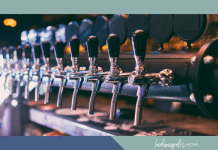January 6th, 2021, will be one of the defining days of our generation. I have spent more time in the Capitol Building halls than most because I spent a fall semester in college working as an intern for Richard G. Lugar (Indiana’s Republican Senator at the time). I interned in Washington D.C. during a complicated time in our country. Within the first month of my arrival, our nation marked the first anniversary of 9/11. During orientation, I was instructed on using the gas masks that were now placed throughout the Capitol following the anthrax attack that also occurred in 2001. It didn’t take long for me to become accustomed to the exterior barricades, the ever-present law enforcement, and the routine of metal detectors to enter buildings. Washington, D.C. is often home to protests, so it was very commonplace to see many Americans exercising their first amendment rights as I went about my daily life. And yet, I felt completely safe on those Capitol grounds.
Like many Americans, I watched as the events unfolded on live TV. I held my breath as I saw armed protestors overrun the Capitol police officer on the same stairs I had myself walked numerous times. I thought of the Senator’s former office with the stately view overlooking the Supreme Court building across the street and wondered who might be barricaded behind the old historic door. I wondered if they held their breath as they heard gunfire and chaos surrounding them. *For clarification, some Congress members have a small, personal office in the Capitol Building while their main office (and staff) are in buildings on the Capitol Hill campus. I thought of my favorite pieces of art in the crypt and the visitor’s center and wondered if they would survive the rampage. I thought specifically of Abraham Lincoln’s piece that, when looked at from straight on, doesn’t look quite right. I remembered the joy of watching visitors on tours after being told to look at it one side at a time see the two distinct faces the artist had made. Then, they could understand the artist had made the piece to show how President Lincoln looked at the beginning and end of his presidency to demonstrate, through art, the toll of leading a nation in turmoil on an individual, not just mentally but physically as well. A reminder that to govern well often requires sacrifice.
I saw images of the press and members of Congress in their gas masks hiding in the Senate gallery, and I thought about the countless times I had sat in those chairs leading a tour group or as a visitor chaperoning high school students, and I wondered if those seats will ever be open to the public for viewing again. I cried to think of the countless Americans who might never be able to experience, first-hand, our representatives doing “the people’s work.” I also recalled sitting there as an intern when Senator Lugar brought a delegation from an emerging democracy to the Senate floor (an unusual but great honor), a culminating moment for these leaders working to bring representative democracy to their countrymen. I wondered how this day would alter the United States’ position in world affairs, perhaps forever. I even considered how a small blessing from this pandemic meant there weren’t any visitors in the chamber galleries that day.
I thought about the Rotunda and Statutory Hall and how no matter how many times I walk through either, the beauty and the magnitude of history that has occurred in each room leaves me awestruck. You see, this is not just a building. It is where for over two hundred years, we have had (even if imperfect) a representative government. It is where we witness a peaceful transition of power on the Capitol steps during a presidential inauguration. It is where we are all welcome to tour its halls, meet with representatives, and learn about its history, our history.
I had a wide range of reactions that day, but the one that troubled me most was the feeling that we all bear some responsibility for this moment we collectively find ourselves in. While most Americans, even some in attendance that day, were not involved in the assault of our Capitol Building, we can no longer deny that what happened that day is the culmination of OUR collective failure as a citizenry. The causes that have led us here are many and varied. However, some factors play an oversized role. As a citizenry, we have spent decades downplaying the social sciences’ importance, leaving many Americans civically uninformed and unengaged. According to a 2017 poll, only 26% of Americans could name all three branches of government. Our active involvement in civic engagement is low compared to other democracies. While there was high turnout in this most recent presidential election, voter turnout tends to hover around and even below 50%.
Furthermore, we have arrived at a point where we avoid discussing politics at almost any cost for fear of divisiveness. A piece in The New York Times stated that friends of Klete Keller purposely avoided talking politics with him before his involvement on January 6th because they were worried the friendship wouldn’t survive a political disagreement. Since Americans largely only engage with those whose political sentiments align with their own, they ignore or completely reject any different perspective. When this is then combined with the ability to tailor media to our own political leanings, we can exist solely in our own echo chamber. Is it any wonder we are at the precipice of disaster?
But, hope is not lost. Our government’s power fundamentally comes from the people, which means that WE can choose to be informed and engaged in our political system to force change. This has happened numerous times throughout our country’s history. We can choose to approach challenging topics with our friends and neighbors with grace and empathy, knowing that commonality can often be found even in disagreement. We can choose to vote for candidates who work collaboratively with those from “the other side” and who refrain from diminishing the worth and dignity of those whose viewpoints differ from their own. We can choose to get outside our own echo chamber and be informed from various credible news sources. We can choose to get off social media and pursue authentic connections that allow for the vulnerability and honesty necessary to have conversations about topics that are often fraught with emotion.
Benjamin Franklin was asked by a group of citizens at the end of the Constitutional Convention what form of government we had been given, to which he quipped, “a republic, if you can keep it.” We get to choose every day how we want to use the power we have been given as citizens to influence this republic. Citizens throughout history have risen to the task. Like any interpersonal relationship, it is imperfect and not without disagreement, but our Founding Fathers never said it was perfect. They created a more perfect union, but it cannot strive for improvement without its citizens doing their part. We must not forget what January 6th made clear. We as a nation have to do better. It is up to us.
*If you are looking for guidance on starting a political discussion, I highly suggest this book.








